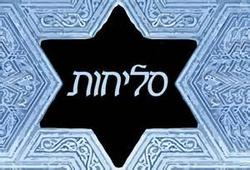 Judaism, by its nature and its role, cannot be questioned, and this applies as much to its reality as to its philosophy. Political leaders can only do so with difficulty, and more often after one or several failures. To demand that Judaism make a personal commitment, that it be responsible for the truth of what it says or for the correctness, is therefore to demand, not that it identify with the politician, nor even to the political theorist, but first that he differentiates his own essence from any ideological temptation in which he would lose himself, would claim to lose himself, as the bearer of a universal human thought.
Judaism, by its nature and its role, cannot be questioned, and this applies as much to its reality as to its philosophy. Political leaders can only do so with difficulty, and more often after one or several failures. To demand that Judaism make a personal commitment, that it be responsible for the truth of what it says or for the correctness, is therefore to demand, not that it identify with the politician, nor even to the political theorist, but first that he differentiates his own essence from any ideological temptation in which he would lose himself, would claim to lose himself, as the bearer of a universal human thought.
This is, without prejudging what such research may bring later, what may emerge from their confrontations, a vital task facing the African Jew today.
It is not a question here of taking Judaism literally and literally, to discuss it point by point, but of seeing how political theses work, and what they imply in fact, and often in contradiction with the intention and objective displayed.
So, on the very nature of the properly Judeo-African theoretical field, on its specificity, notably in relation to political theory, that is to say that it does not start from the idea of a political thought to be created or established, of a project to be developed, but of an African Jewish thought that exists, of a fact that gives rise to a critique carried out from within, and in the conditions of their politico-cultural context.
In short, a theoretical debate is engaged here between African Jews on the political question which now crosses borders, showing from one country to another with divergent interests.
What seems more important here to note at the outset, and before any other examination, is that all this current is placed, one would say spontaneously, in the very field previously defined by the political ideological superstructure (ideas close to those of Bergson , Teilhard de Chardin, Léon Ashkenazi or Leibowitz at best).
Except that the African Jew differs from the politician in that he does not necessarily share its cynicism, and it is not intentionally that he finds himself caught in this paradox.
But philosophically speaking, he is no better off being more often the victim of his own construction or his own political illusion.
